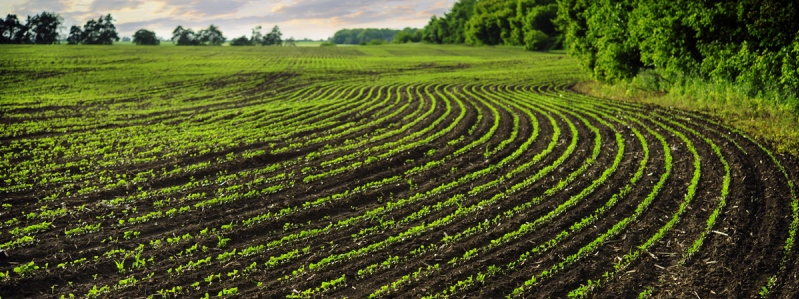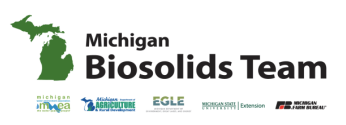All About Land Application of Biosolids
- DID YOU KNOW that 50% of wastewater treatment plants in Michigan treat their biosolids for land application?
- DID YOU KNOW that Michigan regulates land application of biosolids to a higher standard than required by the Clean Water Act, and restricts application for phosphorus levels?
- DID YOU KNOW land appliers of biosolids now have management guidelines that provide recommendations on practices that can reduce the chance of odor, dust, and nutrient runoff?
Here is the place for local governments, concerned citizens, and wastewater professionals to find information about the land application of biosolids: summaries of the rules and regulations, links to resources and research, and management guidelines for land appliers.
Printable and Downloadable MWEA Fact Sheets:
- Biosolids Facts (revised 4/25/23)
- What are Biosolids? An Introduction to biosolids
- Why use biosolids? – Beneficial use of a previous waste stream
- Differences between biosolids and sewage sludge
- Levels of treatment for biosolids
- Who regulates biosolids in Michigan? EPA, EGLE, and MDARD regulations
- Where can biosolids be applied? EGLE land application program and rules
- Concerns and responses regarding use of biosolids
- Contacts for Further Information
- Biosolids Facts - Supplement 1 (revised 4/25/23)
- Class A EQ product vs Class B Regulations
- Biosolids Facts - Supplement 2 (revised 4/25/23)
- Phosphorus Management
- Sources of phosphorus and how phosphorus becomes plant available
- Nutrient Recommendations
- Nutrient Application
- Biosolids Facts - Supplement 3 (revised 4/25/23)
- Fruit and Vegetable Production
- Land Application of Biosolids in Michigan: Management Recommendations (revised 4/25/23)
- Site Selection
- Onsite Storage
- Land Application
- Landowner Assistance
These documents were developed through collaborative partnerships coordinated by the MWEA Biosolids Committee. MWEA brought together representatives from the New England Fertilizer Company (NEFCO) in Detroit, Genesee County Water and Waste Services, the Michigan Department of Environment, Great Lakes and Energy (EGLE) (formerly DEQ), the Michigan Department of Agriculture and Rural Development (MDARD), BioWorks Energy, LLC, and Michigan Farm Bureau to discuss solutions to public concerns about odors, dust, and the possibility of nutrient runoff into waterways from biosolids land application.
The partners agreed that Michigan’s existing statutes and regulations were appropriate, but that what was lacking was: 1) guidelines for land application management practices that could reduce the potential for odor, dust, or other nuisances, and 2) accessible public education about biosolids.
The above links are the product of this collaboration: management recommendations for biosolids land application that are not regulatory in nature, but are designed to assist wastewater treatment facilities and their contractors with practice recommendations to reduce nuisance complaints, and four educational documents: information about how biosolids are regulated in Michigan, how the different classes of biosolids differ in both form and application, how nutrients are managed during land application, and protecting food safety near fruit and vegetable farms.
The partners invited legislators to review and approve the management recommendations and educational documents, and held meetings with concerned citizens and farmers to ensure they addressed outstanding concerns. These documents are meant for use by municipalities, partner organizations, state agencies, legislators, and members of the public to provide both public education and techniques that can reduce the likelihood of nuisance complaints.
 |